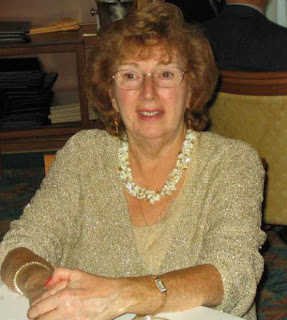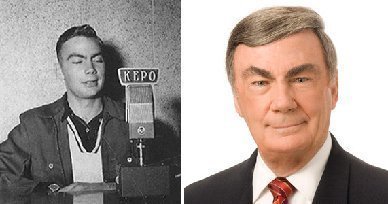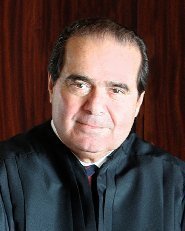Good 25º clear frozen morning.
Yesterday we started frozen. The sky stayed blue and clear and we topped at 70º.
Picture of the Day...architectural goof
Interesting about the Sphinx ....
Great Pyramid in Giza, Egypt. Measuring 240 feet long and 66 feet high, the Great Sphinx is one of the world’s largest monuments. It is also one of the most recognizable relics of the ancient Egyptians, though the origins and history of the colossal structure are still debated.
In Las Vegas, the Egyptian-themed Luxor Hotel's foam and plaster replica of the Sphinx is even larger than the original. The Sphinx in Las Vegas stands 110 feet tall, more than 40 feet taller than the its antique counterpart in Egypt.
The Great Sphinx of Giza, commonly referred to as the Sphinx of Giza, Great Sphinx or just the Sphinx, is a limestone statue of a reclining sphinx, a mythical creature with the head of a human, and the body of a lion. Facing directly from west to east, it stands on the Giza Plateau on the west bank of the Nile in Giza, Egypt. The face of the Sphinx appears to represent the pharaoh Khafre.
Cut from the bedrock, the original shape of the Sphinx has been restored with layers of limestone blocks. It measures 240 ft. long from paw to tail, 66 ft. high from the base to the top of the head and 62 ft. wide at its rear haunches. Its nose was broken off for unknown reasons between the 3rd and 10th centuries AD.
The Sphinx is the oldest known monumental sculpture in Egypt and one of the most recognizable statues in the world. The archaeological evidence suggests that it was created by ancient Egyptians of the Old Kingdom during the reign of Khafre
(c. 2558–2532 BC).
To read a lot more about this, go here:
https://en.wikipedia.org/wiki/Great_Sphinx_of_Giza
From Mr. Food
For years you've been telling the kids they can't have pizza for breakfast. We're allowed to change our minds, aren't we? We mean, can you imagine the looks on their faces when you tell them you made pizza for breakfast?!
- 6 eggs
- 1/4 teaspoon salt
- 1/8 teaspoon black pepper
- 3 tablespoons milk
- 1 tablespoon butter
- 1 (1-pound) store-bought prepared pizza shell, thawed if frozen
- 1 (4-ounce) can mushroom stems and pieces, drained, or fresh sliced mushrooms (see Options)
- 1/2 cup (2 ounces) Cheddar cheese (see Options)
- Preheat oven to 450º.
- In large bowl, beat eggs, salt, pepper, and milk.
- In large skillet, melt butter over medium-low heat. Add egg mixture and scramble until firm, but not browned.
- Place pizza shell on pizza pan or large cookie sheet and spread scrambled eggs over shell; cover evenly with mushrooms and cheese.
- Bake 10 to 12 minutes, until cheese is melted and crust is crisp and golden.
****If your gang would prefer, use bell peppers or sliced plum tomatoes instead of the mushrooms and, for the Cheddar, you can substitute shredded mozzarella or almost any other cheese that melts well.
Special birthday today... my travel pal from years back, Joan Petitclair is celebrating. HAPPY BIRTHDAY JOAN!
Historically this date......
1956 – Joey Buttafuoco, American criminal
An interesting read about Buttafuoco, then click on his gf's name and read about Amy Fisher and what she became and then about his wife Amy shot, Mary Jo. Click on his name above and their links are on there.
All I know. Nuff said. Have a good Friday. Ciao.
ox Sue Mom Bobo
March 11th – On National Johnny Appleseed Day, we remember a man who made apple (and pear) trees bloom across the nation. The day celebrates a kindly legend who lived by sage teachings and labored to bring the shade of fruit trees across much of the United States.
John Chapman
He was born John Chapman on September 26, 1774, in Leominster, Massachusetts, to Nathaniel and Elizabeth Simons Chapman. Not much is known about his early life other than his mother died when he was two. His father packed up Johnny and his sister (an infant brother had died the previous year) and moved to Springfield, Massachusetts. His father served as a Minuteman and fought at Bunker Hill.
Then in 1797, Chapman shows up in northwestern Pennsylvania, propagating his apple seeds. He worked his way steadily into the frontier of West Virginia, Ohio, and Indiana. Eventually, Chapman became known as Johnny Appleseed and worked his way as far west as Illinois and Iowa and as far north as Michigan and Wisconsin.
In his wake, he left orchards and the teachings of Emanuel Swedenborg, a Swedish spiritual leader. Appleseed would buy his books with whatever payment he might receive for his endeavors. In turn, Johnny would give the books away as he traveled and planted.
Mostly, though, he planted his seeds and seedlings for free along with his wisdom, his broad-brimmed pasteboard hat keeping the sun from his eyes as he went. Often shoeless, he traveled mostly by foot and sometimes by horseback or canoe. His appearance was nearly as noteworthy as his accomplishments, but so was his kindness. Farmers and frontier folk always found a place at the table if Johnny Appleseed came visiting.
There are many stories told that the man would travel many miles to nurse an ailing orchard when word would reach him of its poor condition. Bringing the trees back to health would be his chief endeavor while dispersing wisdom, care, and kindness as he did.
Landmarks
Across the Midwest, landmarks pepper the countryside honoring the man that brought fruit to the frontier. Warren County, Pennsylvania, lays claim to Johnny Appleseed’s first tree nursery.
Mansfield, Ohio, honors the man with a monument in South Park. The last known Chapman tree still lives! In rural Ashland County, Ohio, the tree struggles to survive, but half of it still manages to bloom in the spring.
In his hometown of Springfield, Massachusetts, there is an entire park named after the man who nurtured the land and made apple trees bloom across a young nation.
Two dates celebrate Johnny Appleseed Day, either March 11th or September 26th. The September date is Appleseed’s acknowledged birth date. However, many people across the country prefer the March date due to the planting season. While some vagueness surrounds Appleseed’s death and burial, he became ill in early March and passed soon after. In Fort Wayne, Indiana, in Johnny Appleseed Park, a grave marks the spot where the legendary sower of apple seeds rests.










No comments:
Post a Comment